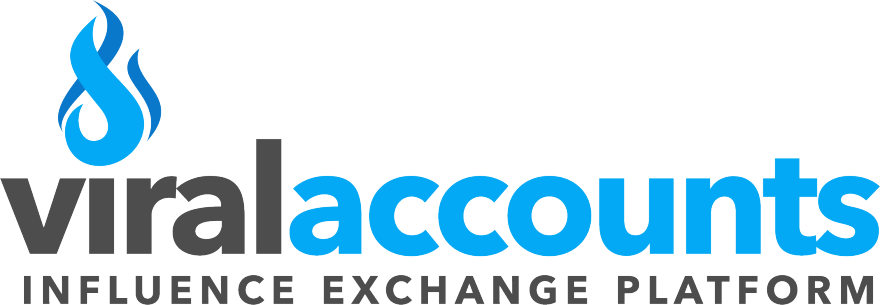Interesting Facts
Have you ever wondered how to add someone to a Twitter account? Unlike other social platforms, Twitter does not allow multiple users to access a personal account simultaneously, which can complicate team management. However, there are secure ways to collaborate without sharing passwords, especially with Twitter’s professional tools and third-party apps like TweetDeck.
Why Isn’t There a Simple “Add User” Button on Twitter?
Twitter emphasizes personal account security by restricting shared access. Unlike some platforms that provide integrated collaboration tools, Twitter accounts are designed for single-user access to protect your personal brand and reduce risks of unauthorized activity. Sharing login credentials is discouraged because it can lead to security breaches and misinformation.
Enter Twitter’s Professional Tools for Delegated Access
For businesses and creators, Twitter’s Professional accounts introduce delegated access. This feature lets you grant team members controlled permissions to post, run ads, or analyze metrics without sharing your password. Delegated access balances collaboration with security. To learn more about the advantages of such professional features, visit our services page.
The Path to Adding Someone: Using Twitter Business Settings and Ads Manager
To add team members, convert your personal account to a Professional account via settings. Then, through Business Settings or Ads Manager, invite users by their Twitter handles and assign appropriate roles such as Admin, Creator, or Analyst. Invited members must accept the invitation, enabling collaboration without password sharing. If you want to buy a pre-verified Twitter account to ease your setup, check out our offering here.
What Roles Can You Assign? Understanding Twitter’s Role System
Twitter defines roles with varying permissions:
- Admin: Full control over posting, ads, team management, and settings.
- Creator: Can post tweets and manage content but limited access to ads and team management.
- Analyst: Access to analytics and performance reports without content posting rights.
This system helps maintain security and clarity in team responsibilities.
What If I Just Want to Share My Account With One Friend or Colleague?
Personal account holders without Professional status cannot officially add collaborators. Sharing passwords is risky and discouraged. Instead, use third-party tools like TweetDeck for safe multi-user management without disclosing your login credentials. For detailed instructions on how to use TweetDeck for adding users, you might find this guide helpful: how to give access to a Twitter account.
TweetDeck: A Friend for Collaborative Twitter Management
TweetDeck is a free, web-based dashboard that enables teams to tweet, retweet, and engage on Twitter without sharing passwords. Adding team members is easy: log into TweetDeck, select your account, go to “Manage Team,” invite members by their Twitter handle, and they accept the invitation to gain access.
Manage Your Twitter Team with Confidence and Security
Security Considerations When Collaborating on Twitter Accounts
Security is paramount when more than one person manages a Twitter account. Use delegation and professional tools to keep credentials private, assign clear permissions, and revoke access immediately if needed. Enabling two-factor authentication and regularly auditing access adds extra protection against unauthorized use. For more tips on managing access securely, you can also read this helpful article on adding or removing someone from your X list.
Frequently Asked Questions on Adding Users to Twitter Accounts
Can I add multiple people to my personal Twitter account?
Officially no, but Professional accounts and TweetDeck enable safe collaboration.
Do I need a Twitter Business account to add team members?
Yes, upgrading unlocks delegation and role assignments.
Is sharing my Twitter password with a colleague safe?
No, it risks security and account control.
Can I schedule tweets without giving access?
Yes, many tools support scheduling without sharing passwords.
How do invited team members accept access?
They must confirm invitations via Twitter or TweetDeck.
A Real-World Example: How a Small Business Owner Handles Twitter Collaboration
Lisa, a coffee shop owner, upgraded to a Professional Twitter account and invited her assistant with a Creator role. This allowed her assistant to manage posts and respond to customers without access to billing or team invites. When team changes occur, Lisa can easily adjust access without compromising security. Her approach aligns well with best practices explained in this managing multiple Twitter accounts guide.
Why Twitter’s Method Is Actually Beneficial
Twitter’s cautious delegation limits misuse and protects reputations by ensuring owners maintain control and assign specific permissions. This also unlocks business features and analytics for enhanced account management.
Final Thoughts: How to Manage Shared Twitter Accounts Responsibly
Twitter accounts can be shared securely through Professional accounts, delegated access, and tools like TweetDeck—never by sharing passwords. Collaboration is about trust, responsibility, and maintaining control. With the right tools, multiple voices can contribute safely and effectively to your Twitter presence.
Building a collaborative Twitter account is easier and safer than ever when you use the right professional tools and workflows—so go ahead and empower your team without risking your account’s security, and keep your brand’s voice strong and clear!
Can I add multiple people to my personal Twitter account?
Officially, personal Twitter accounts do not support multiple users. To collaborate, upgrade to a Professional account or use TweetDeck for multi-user management.
Do I need a Twitter Business account to add team members?
Yes. Switching to a Professional account unlocks features like Business Settings and Ads Manager to delegate team access securely.
Is sharing my Twitter password with a colleague safe?
No. Sharing passwords is risky and discouraged due to potential unauthorized access and loss of account control.

